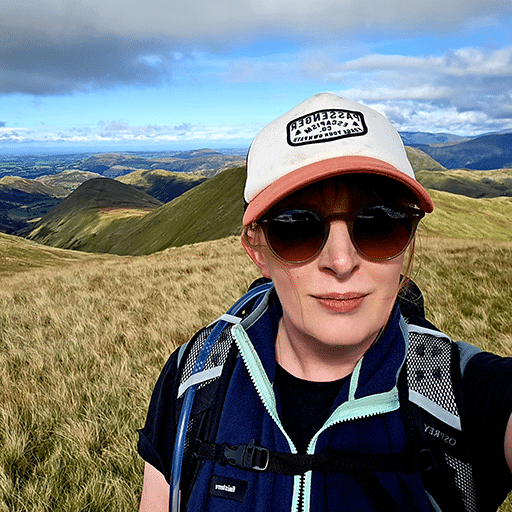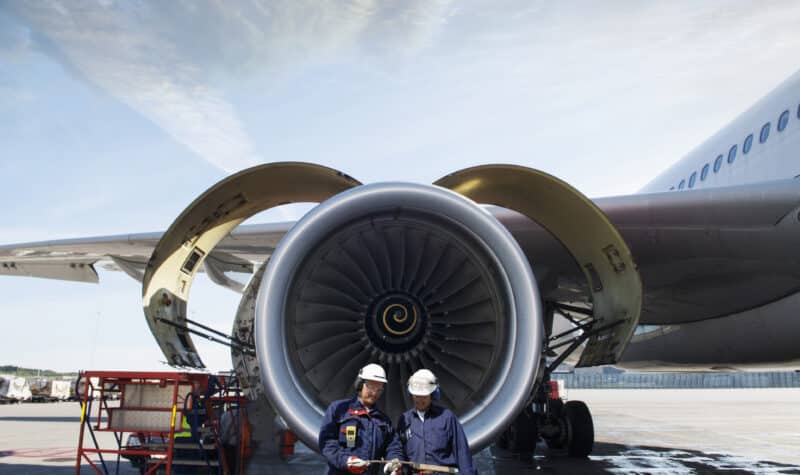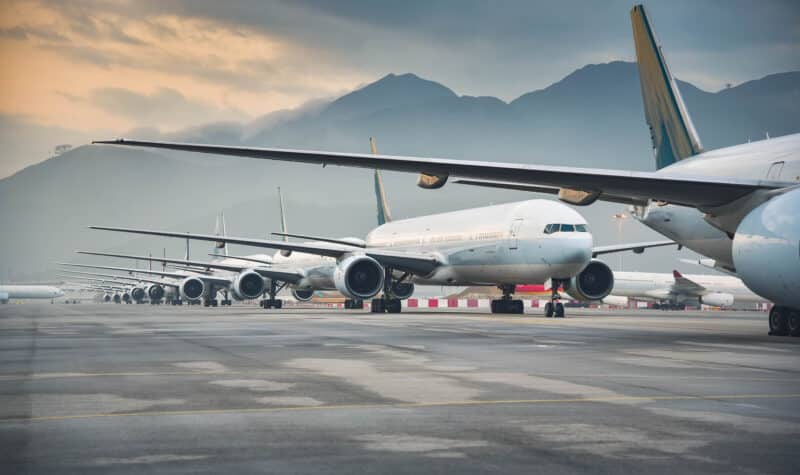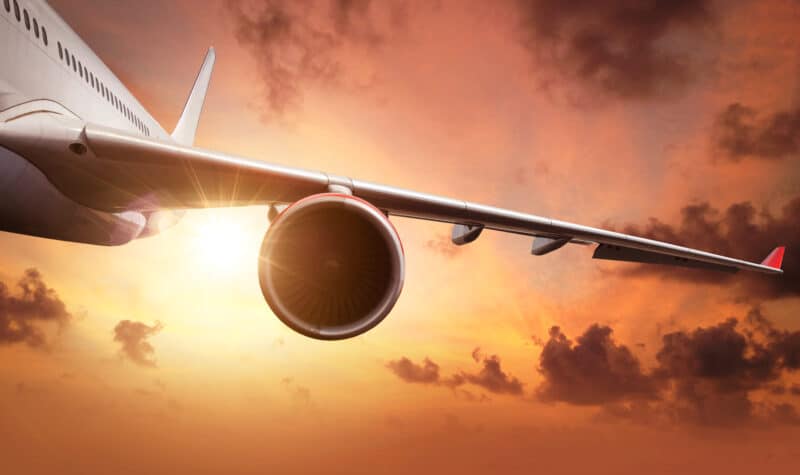We’re all shaped by the stories we’re told.
So, it is not at all surprising that airlines spend millions of dollars every year targeting us with adverts that tell us about the benefits of flying.
But we’re still only hearing one side of the story.
Much of my focus over the last year has been looking at the stories we’re told about aviation, and exploring how we might be able to tell new stories as a way to build a different future for the sector.
A story about aviation stories
To explain this better, I’d like to tell you a story. This is a story about Julie. She is a teacher. She works hard and she enjoys taking her two kids on holiday during the summer holidays.
Julie is what we would call a ‘persuadable’. A term coined by ACT Climate Labs, the persuadables are the silent majority. They agree that climate change is happening and are broadly supportive of action but have minimal engagement on the issue.
Every morning, on the train to work, Julie is targeted by airline adverts selling her a dream of flying off to Spain or Turkey. She listens to the radio while cooking dinner in the evening and hears adverts telling her how airlines are investing in greener fuel options. And when she scrolls through Facebook in bed, she hears stories from commentators about how environmentalists are trying to take away her right to a holiday.
So when Julie hears about measures to tax aviation, she’s concerned about what this means. And she doesn’t want to think she’s part of the problem.
The challenge of one-sided story telling
And this has created a challenge for the aviation NGO community. Because these stories have squashed opportunities to build public support for measures to tackle the climate impact of flying, given the aviation industry cover to hide behind and caused political inertia.
It’s closed down the space for us to push for vital measures to address aviation emissions now, and invest in real solutions for the sector into the future.
This is worrying when we consider that aviation is currently responsible for around three per cent of global carbon emissions, but that by 2050 the continued growth of the sector puts it on track to be responsible for somewhere closer to 25 per cent.
By 2040 in Europe alone, over 650,000 more people could be flying each year. That is 650,000 more people like Julie being influenced by the stories and narratives sold to them by airlines.
But Julie is only hearing one side of the story.
She’s not hearing that while she pays a fuel tax on the petrol in her car so she can go visit her parents at the weekend, no such tax is paid by airlines on jet fuel. She doesn’t hear about the pressure put on health services from the health issues related to noise and air pollution at airports. Or the children suffering from asthma because their school is under a flight path.
She doesn’t hear that despite airlines selling their green credentials, greener fuels still make up less than one per cent of the fuel they use. And she doesn’t hear that in the UK, just 15 per cent of the population are responsible for 70 per cent of flights. And that in any given year, over half of the population doesn’t fly at all. That it’s a small minority of the super rich frequently hopping on flights – often polluting private jets – without ever having to pay for their pollution, that is the real problem.
So what if she did hear this? And more, what if she heard about the real solutions to tackle flying’s impact?
Crafting a new narrative for aviation
Last year, we teamed up with ACT Climate Labs, founded by ethical agency Media Bounty, and Walnut Unlimited, a market research agency specialising in unleashing the power of neuro and behavioral sciences, to better under the stories that would resonate with a broad public audience.
We wanted to better understand how to communicate with these audiences in a way that would speak to their core values. We researched the existing stories they were being told by the aviation industry, and developed narratives that would help counter this one-sided view.
We wanted to explore how topics such as fairness, community and health could bring new perspectives to policies, to more effectively price fossil fuel use in aviation and tackle excessive flying.
But we also wanted to explore new narratives around the opportunities for the aviation sector to transition, the impacts of overtourism, and better understanding the economic impact of unmitigated growth in flying.
We used both quantitative and qualitative testing to best understand which narratives and frames resonated most with persuadables in four European countries: the UK, France, Spain and Germany.
The results of the research were promising. We have strong narratives to work with that are able to take our audiences on a journey. We have impactful hooks that effectively speak to people’s emotions and motivate responses, and more in-depth stories that grow as our audiences explore the details. This has proved that people can really get engaged on this topic when given the other side of the story.
An opportunity to tell a new story
Another future is possible for the aviation sector. There are opportunities and solutions to help decarbonise flight. But we know these real solutions will take time to develop. And that means in the near term, we need to see ambitious policies that help tackle excessive flying, limit the near-term growth of the sector, and reduce the use of fossil fuels in flight.
This can only happen with public support. Politicians need to hear from their constituents and airlines need to hear from their customers.
This won’t happen while the industry continues to dominate the story. But there is another story we can tell. One that speaks to people’s values, and paints a fairer and more positive future for the aviation sector. These are the stories we need to tell in public spaces, that can shift the public discourse.
Together, we can shape the way we think and feel about aviation. Are you with me?
Read the full narrative guide & get in touch
Want to know more about the frames and narratives that resonate with a public audience? Take a deep dive into our report today. Or get in touch to learn more about our work on challenge the aviation industry’s narrative.

About the Author
Tierney Smith
Passionate about the role communications plays in driving positive change Tierney spends her days plotting new ways to support the Climate Catalyst team and our partners to deliver creative outputs that reach new audiences across multiple channels.



